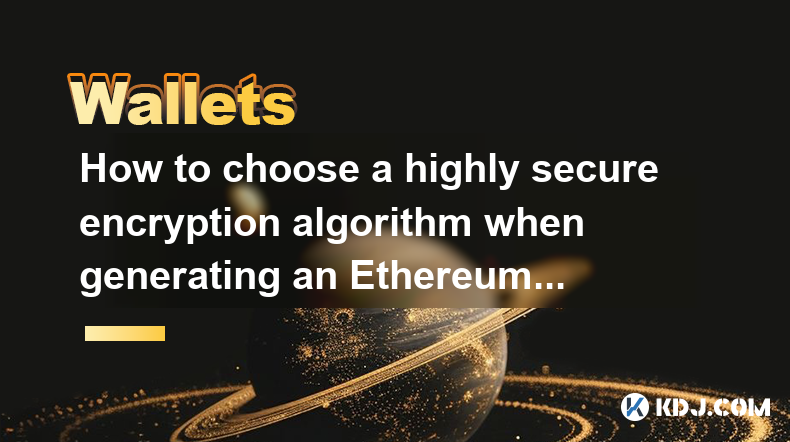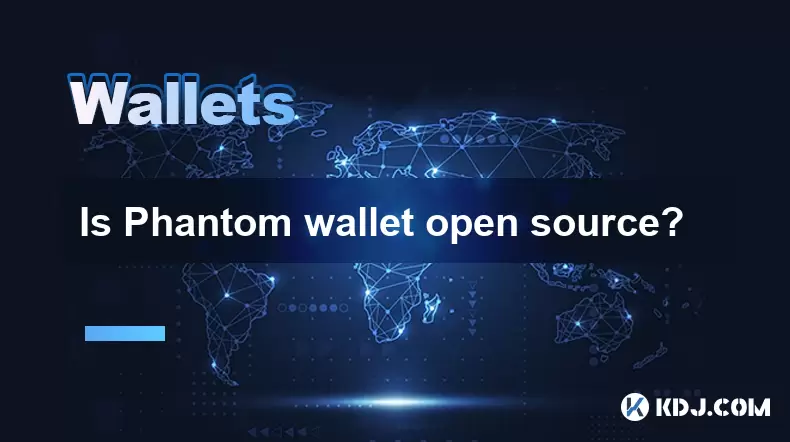-
 Bitcoin
Bitcoin $108,262.4325
-1.40% -
 Ethereum
Ethereum $2,518.2882
-2.94% -
 Tether USDt
Tether USDt $1.0003
-0.01% -
 XRP
XRP $2.2262
-1.71% -
 BNB
BNB $653.9254
-1.55% -
 Solana
Solana $148.1036
-3.11% -
 USDC
USDC $1.0000
0.01% -
 TRON
TRON $0.2829
-1.45% -
 Dogecoin
Dogecoin $0.1639
-4.82% -
 Cardano
Cardano $0.5742
-4.43% -
 Hyperliquid
Hyperliquid $38.9506
-3.95% -
 Sui
Sui $2.9040
-4.34% -
 Bitcoin Cash
Bitcoin Cash $484.8307
-2.62% -
 Chainlink
Chainlink $13.1971
-3.73% -
 UNUS SED LEO
UNUS SED LEO $9.0822
0.51% -
 Avalanche
Avalanche $17.8613
-4.01% -
 Stellar
Stellar $0.2385
-2.26% -
 Toncoin
Toncoin $2.7570
-3.88% -
 Shiba Inu
Shiba Inu $0.0...01145
-3.99% -
 Litecoin
Litecoin $86.9999
-2.43% -
 Hedera
Hedera $0.1538
-3.90% -
 Monero
Monero $313.7554
-2.03% -
 Polkadot
Polkadot $3.3681
-5.08% -
 Dai
Dai $1.0000
0.00% -
 Ethena USDe
Ethena USDe $1.0001
-0.01% -
 Bitget Token
Bitget Token $4.4401
-2.97% -
 Uniswap
Uniswap $6.9644
-8.41% -
 Pepe
Pepe $0.0...09666
-4.79% -
 Aave
Aave $266.5686
-5.04% -
 Pi
Pi $0.4713
-4.95%
How to choose a highly secure encryption algorithm when generating an Ethereum wallet address?
Ethereum wallet security relies on robust key management and reputable software using secp256k1, not algorithm selection; focus on strong randomness in key generation and safeguarding your private keys.
Mar 18, 2025 at 04:36 am

Key Points:
- Ethereum wallet addresses are generated using cryptographic techniques, not directly from encryption algorithms. The security relies on the underlying elliptic curve cryptography (ECC).
- Choosing a "secure encryption algorithm" is not directly applicable; instead, focus on using reputable wallet software and hardware that employ robust cryptographic practices.
- The security of your Ethereum wallet depends more on key management, private key security, and the overall security of the wallet software or hardware than on the specific algorithm used internally.
- Understanding the importance of randomness in key generation is crucial.
How to Choose a Highly Secure Encryption Algorithm When Generating an Ethereum Wallet Address?
The question of choosing a "highly secure encryption algorithm" when generating an Ethereum wallet address is slightly misleading. Ethereum addresses aren't generated directly from an encryption algorithm in the typical sense (like AES or RSA). Instead, they are derived from a cryptographic hash of your public key, which itself is generated using elliptic curve cryptography (ECC). The specific ECC algorithm used is integral to the security, but you don't typically select it directly.
Ethereum uses secp256k1, a specific elliptic curve defined in the Standards for Efficient Cryptography (SEC) group, for its cryptographic operations. This is a well-vetted and widely-used ECC algorithm, considered highly secure against known attacks. You don't choose this algorithm; it's built into the Ethereum protocol and implemented in all reputable wallet software. Trying to bypass or replace it would render your wallet incompatible with the Ethereum network.
The security of your Ethereum wallet isn't determined by choosing a specific algorithm within the wallet generation process. Instead, it hinges on several critical factors:
- The strength of the underlying ECC (secp256k1): As mentioned, this is already a secure and widely-accepted algorithm. Focusing on choosing an alternative here is unproductive and likely to compromise security.
- The randomness of the private key generation: The private key is the foundation of your wallet's security. It must be generated using a robust, cryptographically secure random number generator (CSPRNG). A predictable or weakly random private key is easily compromised. Reputable wallet software utilizes high-quality CSPRNGs.
- The security of your wallet software or hardware: The software or hardware wallet you choose plays a crucial role. A poorly-coded or vulnerable wallet application, even if using secp256k1, can be easily compromised. Opt for established, well-reviewed wallets with a strong security track record. Hardware wallets offer superior security by keeping your private keys offline.
- Proper key management: This is arguably the most important aspect. Never share your private key with anyone, protect it from malware, and use strong, unique passwords to access your wallet. Regularly back up your seed phrase (the mnemonic representation of your private key) but keep it secure offline.
Generating a Secure Ethereum Wallet Address: A Step-by-Step Guide (using reputable software)
The process doesn't involve selecting specific algorithms. The focus is on using trusted tools and practicing safe key management.
- Choose a reputable wallet: Research and select a well-established and trustworthy wallet provider (e.g., MetaMask, Ledger, Trezor).
- Install the wallet: Follow the instructions provided by your chosen wallet provider to install and set it up correctly.
- Create a new wallet: The wallet software will handle the generation of your private and public keys using secp256k1 and a CSPRNG.
- Secure your seed phrase: Carefully record your seed phrase and store it securely offline. This is your key to recovering your wallet if you lose access.
- Regularly update your wallet software: Keep your wallet software updated to benefit from the latest security patches and improvements.
Common Questions:
Q: Can I improve the security of my Ethereum wallet by using a different encryption algorithm?
A: No. Ethereum uses secp256k1, and attempting to change this would break compatibility. Security comes from proper key management, using reputable wallets, and maintaining good security practices.
Q: What if secp256k1 is broken in the future?
A: While unlikely, major breakthroughs in cryptography are possible. If secp256k1 were compromised, the Ethereum network would need to transition to a different algorithm, a process that would be carefully managed and announced widely.
Q: Is it safe to generate my own wallet using code?
A: While technically possible, it's strongly discouraged unless you are an experienced cryptographer. Improper implementation can introduce vulnerabilities. Using established wallet software is far safer.
Q: How often should I back up my seed phrase?
A: Back up your seed phrase immediately after creating your wallet and then consider additional backups at regular intervals, storing them in separate secure locations.
Q: What makes a hardware wallet more secure?
A: Hardware wallets keep your private keys offline and secured within a tamper-resistant device, protecting them from malware and other attacks targeting software wallets.
Disclaimer:info@kdj.com
The information provided is not trading advice. kdj.com does not assume any responsibility for any investments made based on the information provided in this article. Cryptocurrencies are highly volatile and it is highly recommended that you invest with caution after thorough research!
If you believe that the content used on this website infringes your copyright, please contact us immediately (info@kdj.com) and we will delete it promptly.
- Bitcoin's Pattern Break: Are HODLers the Key to the Next Surge?
- 2025-07-04 18:50:12
- Bitcoin Price, Trump's Bill, and the $150K Dream: A NYC Take
- 2025-07-04 19:50:12
- Ethereum, LILPEPE, and the July Bounce: Will Pepe Steal ETH's Thunder?
- 2025-07-04 19:10:12
- Binance Institutional Loans: Unlocking 4x Leverage and Zero Interest for Whales
- 2025-07-04 19:15:12
- Bitcoin Bull Run: Analysts Eye Peak in Late 2025?
- 2025-07-04 19:20:13
- Pepe Indicators, Bullish Forecast: Can the Meme Coin Rally?
- 2025-07-04 19:25:12
Related knowledge

How to cancel a pending transaction in Phantom wallet?
Jul 03,2025 at 07:21pm
Understanding Pending Transactions in Phantom WalletA pending transaction in the Phantom wallet occurs when a user initiates a transfer or interaction with the Solana blockchain, but it hasn't yet been confirmed by the network. This can happen due to various reasons such as low transaction fees, network congestion, or incorrect gas settings. It's import...

How to see the estimated value of my tokens in Phantom wallet?
Jul 04,2025 at 12:21am
What is Phantom Wallet?Phantom wallet is one of the most popular cryptocurrency wallets designed for the Solana blockchain. It allows users to store, send, receive, and manage various tokens built on Solana, including SPL tokens and NFTs. The wallet offers a user-friendly interface, making it accessible for both beginners and advanced users in the crypt...

How to lock my Phantom wallet extension?
Jul 03,2025 at 11:14am
What Is the Phantom Wallet and Why Lock It?The Phantom wallet is a popular non-custodial cryptocurrency wallet designed for interacting with the Solana blockchain. Supporting both browser extensions and mobile apps, Phantom allows users to store, send, receive, and stake SOL tokens, as well as interact with decentralized applications (dApps). Securing y...

Does Phantom wallet offer two-factor authentication (2FA)?
Jul 03,2025 at 09:00am
Understanding Phantom Wallet and Its Security FeaturesPhantom wallet is a widely used non-custodial cryptocurrency wallet that supports the Solana blockchain. It allows users to store, send, receive, and interact with decentralized applications (dApps) seamlessly. As security is a top priority for any crypto wallet user, security features like two-facto...

What is "rent" on Solana and how does it affect my Phantom wallet?
Jul 02,2025 at 08:35pm
Understanding 'Rent' on SolanaIn the context of Solana, the term 'rent' refers to a storage fee that users pay for maintaining data on the blockchain. Unlike Ethereum, where storage costs are paid once via gas fees during contract deployment, Solana implements a recurring cost model to ensure efficient usage of network resources. This means that any acc...

Is Phantom wallet open source?
Jul 03,2025 at 12:29am
What is Phantom Wallet?Phantom wallet is a non-custodial cryptocurrency wallet primarily designed for the Solana blockchain. It allows users to store, send, receive, and interact with decentralized applications (dApps) on the Solana network. The wallet is available as a browser extension and mobile application, offering a seamless experience for both be...

How to cancel a pending transaction in Phantom wallet?
Jul 03,2025 at 07:21pm
Understanding Pending Transactions in Phantom WalletA pending transaction in the Phantom wallet occurs when a user initiates a transfer or interaction with the Solana blockchain, but it hasn't yet been confirmed by the network. This can happen due to various reasons such as low transaction fees, network congestion, or incorrect gas settings. It's import...

How to see the estimated value of my tokens in Phantom wallet?
Jul 04,2025 at 12:21am
What is Phantom Wallet?Phantom wallet is one of the most popular cryptocurrency wallets designed for the Solana blockchain. It allows users to store, send, receive, and manage various tokens built on Solana, including SPL tokens and NFTs. The wallet offers a user-friendly interface, making it accessible for both beginners and advanced users in the crypt...

How to lock my Phantom wallet extension?
Jul 03,2025 at 11:14am
What Is the Phantom Wallet and Why Lock It?The Phantom wallet is a popular non-custodial cryptocurrency wallet designed for interacting with the Solana blockchain. Supporting both browser extensions and mobile apps, Phantom allows users to store, send, receive, and stake SOL tokens, as well as interact with decentralized applications (dApps). Securing y...

Does Phantom wallet offer two-factor authentication (2FA)?
Jul 03,2025 at 09:00am
Understanding Phantom Wallet and Its Security FeaturesPhantom wallet is a widely used non-custodial cryptocurrency wallet that supports the Solana blockchain. It allows users to store, send, receive, and interact with decentralized applications (dApps) seamlessly. As security is a top priority for any crypto wallet user, security features like two-facto...

What is "rent" on Solana and how does it affect my Phantom wallet?
Jul 02,2025 at 08:35pm
Understanding 'Rent' on SolanaIn the context of Solana, the term 'rent' refers to a storage fee that users pay for maintaining data on the blockchain. Unlike Ethereum, where storage costs are paid once via gas fees during contract deployment, Solana implements a recurring cost model to ensure efficient usage of network resources. This means that any acc...

Is Phantom wallet open source?
Jul 03,2025 at 12:29am
What is Phantom Wallet?Phantom wallet is a non-custodial cryptocurrency wallet primarily designed for the Solana blockchain. It allows users to store, send, receive, and interact with decentralized applications (dApps) on the Solana network. The wallet is available as a browser extension and mobile application, offering a seamless experience for both be...
See all articles

























































































